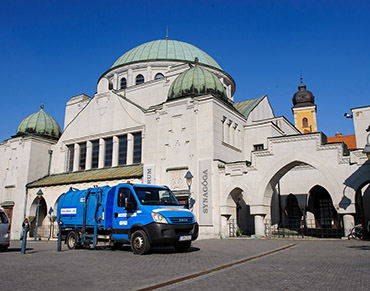Sorted collection turns unwanted items into raw materials
The generation and gradual accumulation of waste constitutes a significant impact on the environment. The current state of the environment highlights the need to address the reduction of municipal, industrial and hazardous waste.
One of the ways to reduce the amount of municipal waste is through sorted collection and at the same time educating citizens. It is the citizen – the consumer – who decides whether to sort the waste and thus allow it to be recovered (recycled) or not, and the waste goes to the landfill.
Sorted collection turns unwanted items into raw materials that can re-enter the production process. This saves a lot of natural resources, reduces negative impacts on human health and the environment, not only in production processes, but also in landfills where unsorted municipal waste can create uncontrolled processes.
Basic sorted components of municipal waste include paper, plastics, glass, metals and biodegradable waste. The main objective of establishing a functioning separate collection system is to put in place an appropriate system for the collection, removal, sorting and final recovery of sorted waste. One of the factors influencing this objective is the motivation of the population to sort out waste.







